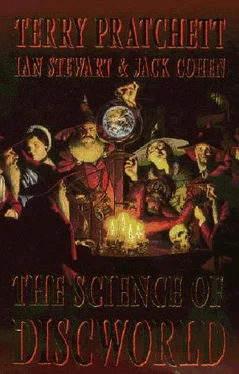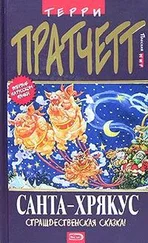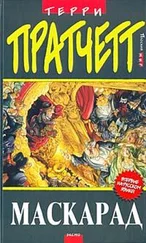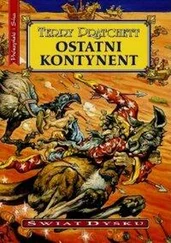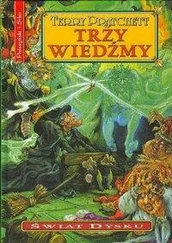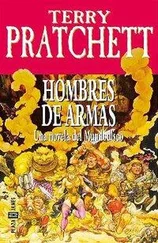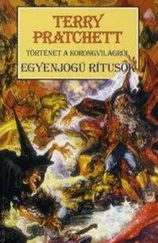Terry Pratchett - Science of Discworld
Здесь есть возможность читать онлайн «Terry Pratchett - Science of Discworld» весь текст электронной книги совершенно бесплатно (целиком полную версию без сокращений). В некоторых случаях можно слушать аудио, скачать через торрент в формате fb2 и присутствует краткое содержание. Жанр: Фантастика и фэнтези, на английском языке. Описание произведения, (предисловие) а так же отзывы посетителей доступны на портале библиотеки ЛибКат.
- Название:Science of Discworld
- Автор:
- Жанр:
- Год:неизвестен
- ISBN:нет данных
- Рейтинг книги:4 / 5. Голосов: 1
-
Избранное:Добавить в избранное
- Отзывы:
-
Ваша оценка:
- 80
- 1
- 2
- 3
- 4
- 5
Science of Discworld: краткое содержание, описание и аннотация
Предлагаем к чтению аннотацию, описание, краткое содержание или предисловие (зависит от того, что написал сам автор книги «Science of Discworld»). Если вы не нашли необходимую информацию о книге — напишите в комментариях, мы постараемся отыскать её.
Science of Discworld — читать онлайн бесплатно полную книгу (весь текст) целиком
Ниже представлен текст книги, разбитый по страницам. Система сохранения места последней прочитанной страницы, позволяет с удобством читать онлайн бесплатно книгу «Science of Discworld», без необходимости каждый раз заново искать на чём Вы остановились. Поставьте закладку, и сможете в любой момент перейти на страницу, на которой закончили чтение.
Интервал:
Закладка:
Magic, however, is only one aspect of Discworld. There's a lot of science on Discworld, too, or at least rational engineering. Balls get thrown and caught, the biology of the river Ankh resembles that of a typical terrestrial swamp or sewage farm, and light goes in more or less straight lines. Very slowly, though. As we read in The Light Fantastic: 'Another Disc day dawned, but very gradually, and this is why. When light encounters a strong magical field it loses all sense of urgency. It slows right down. And on the Discworld the magic was embarrassingly strong, which meant that the soft yellow light of dawn flowed over the sleeping landscape like the caress of a gentle lover or, as some, would have it, like golden syrup.' The same quote tells us that as well as rational engineering there's a lot of magic in Discworld: overt magic which slows light down; magic that allows the sun to orbit the world provided that occasionally one of the elephants lifts its leg to let the sun pass. The sun is small, nearby, and travels faster than its own light. This appears to cause no major problems.
There is magic in our world, too, but of a different, less obvious kind. It happens around everybody all the time, in all those little causalities which we don't understand but just accept. When we turn the switch and the light comes on. When we get into the car and start the engine. When we do all those improbable and ridiculous things that, thanks to biological causality, make babies. Certainly many people understand, often to quite a detailed degree, what is going on in particular areas, but sooner or later we all reach our Magical Event Horizon. Clarke's Law states that any sufficiently advanced technology looks like magic. 'Advanced' here is usually taken to mean 'shown to us by advanced aliens or people from the future', like television shown to Neanderthals. But we should realize that television is magic to nearly everyone that uses it now, to those behind the camera as well as to those sitting on the couch in front of the moving picture in the funny box. At some point in the process, in the words of cartoonist S. Harris, 'a miracle occurs'.
Science takes on the aura of magic because the design of a civilization proceeds by a type of narrative imperative, it makes a coherent story. In about 1970, Jack gave a lecture to a school audience on 'The Possibility of Life on Other Planets'. He talked about evolution, what planets were made of, all the things that you'd expect in such a lecture. The first question was from a girl of about 15, who asked 'You believe in evolution, don't you, sir?' The teacher went on about it not being a 'proper' question, but Jack answered it anyway, saying, rather pretentiously, 'No, I don't believe in evolution, like people believe in God ... Science and technology are not advanced by people who believe, but by people who don't know but are doing their best to find out ... steam engine ... spinning jenny ... television ...'At that, she was on her feet again: 'No, that ain't how television was invented!' The teacher tried to calm the discussion by asking her to explain how she thought television was invented. 'My father works for Fisher Ludlow making pressed steel for car bodies. He gets paid and he gives some of the money to the government to give him things. So he tells the government he wants to watch television, and they pay someone to invent television, and they do!'
It's very easy to make this mistake, because technology progresses by pursuing goals. We get the feeling that if we pour in enough resources, we can achieve anything. Not so. Pour in enough resources, and we can achieve anything that is within reach of current know-how, or possibly just a bit beyond if we're lucky. But nobody tells us about the inventions that fail. Nobody tries to raise funding for a project that they know can't possibly work. No funding body will pay for research projects in which we have no idea where to start. We could pour as much money as we liked into developing antigravity or faster-than-light travel, and we'd get nowhere.
When you can take a machine to bits and see how it works, you get a clear feeling for the constraints within which it has to operate. In such cases, you're not going to confuse science and magic. The first cars required an extremely hands-on starting system, you stuck a big handle into the engine and literally 'turned it over'. Whatever the engine did when it started, you knew it wasn't magic. However, as technology develops it usually doesn't remain transparent to the user. As more people began to use cars, more and more of the obvious technology was replaced by symbols. You worked switches with labels to get things to happen. That's our version of the magic spell: you pull a knob called Cold Start and the engine does all the cold start things for itself. When Granny wants to drive she does not have to do much more than push the accelerator for 'Go'. Little imps do the rest, by magic.
This process is the core of the relation between science and magic in our own world. The universe into which we were born, and in which our species evolved, runs by rules, and science is our way of trying to work out what the rules are. But the universe that we are now constructing for ourselves is one that, to anyone other than a member of the design team and very possibly even to them, works by magic.
A special kind of magic is one of the many things that have made humans what they are. It's called education. It's how we pass on ideas from one generation to the next. If we were like computers, we'd be able to copy our minds into our children, so that they would grow up agreeing with every opinion that we hold dear. Well, actually they wouldn't, though they might start out that way. There is an aspect of education that we want to draw to your attention. We call it 'lies-to-children'. We're aware that some readers may object to the word 'lie', it got Ianand Jack into terrible trouble with some literally-minded Swedes at a scientific conference who took it all terribly seriously and spent several days protesting that 'It's not a for It is. It is for the best possible reasons, but it is still a lie. A lie-to-children is a statement that is false, but which nevertheless leads the child's mind towards a more accurate explanation, one that the child will only be able to appreciate if it has been primed with the lie.
The early stages of education have to include a lot of lies-to-children, because early explanations have to be simple. However, we live in a complex world, and lies-to-children must eventually be replaced by more complex stories if they are not to become delayed-action genuine lies. Unfortunately, what most of us know about science consists of vaguely remembered lies-to-children. For example, the rainbow. We all remember being told at school that glass and water split light into its constituent colours, there's even a nice experiment where you can see them, and we were told that this is how rainbows form, from light passing through raindrops. When we were children, it never occurred to us that while this explains the colours of the rainbow it doesn't explain its shape. Neither does it explain how the light from the many different raindrops in a thundershower somehow combines to create a bright arc. Why doesn't it all smudge out? This is not the place to tell you about the elegant geometry of the rainbow, but you can see why 'lie' is not such a strong word after all. The school explanation diverts our attention from the real marvel of the rainbow, the cooperative effects of all the raindrops, by trying to pretend that once you've explained the colours, that's it.
Other examples of lies-to-children are the idea that the Earth's magnetic field is like a huge bar magnet with N and S marked on it, the picture of an atom as a miniature solar system, the idea that a living amoeba is a billion-year-old 'primitive' organism, the image of DNA as the blueprint for a living creature, and the connection between relativity and Einstein's hairstyle (it's the sort of crazy idea that only people with hair like that can come up with). Quantum mechanics lacks a public 'icon' of this kind, it doesn't tell a simple story that a non-specialist can grab and hang on to, so we feel uncomfortable about it.
Читать дальшеИнтервал:
Закладка:
Похожие книги на «Science of Discworld»
Представляем Вашему вниманию похожие книги на «Science of Discworld» списком для выбора. Мы отобрали схожую по названию и смыслу литературу в надежде предоставить читателям больше вариантов отыскать новые, интересные, ещё непрочитанные произведения.
Обсуждение, отзывы о книге «Science of Discworld» и просто собственные мнения читателей. Оставьте ваши комментарии, напишите, что Вы думаете о произведении, его смысле или главных героях. Укажите что конкретно понравилось, а что нет, и почему Вы так считаете.
